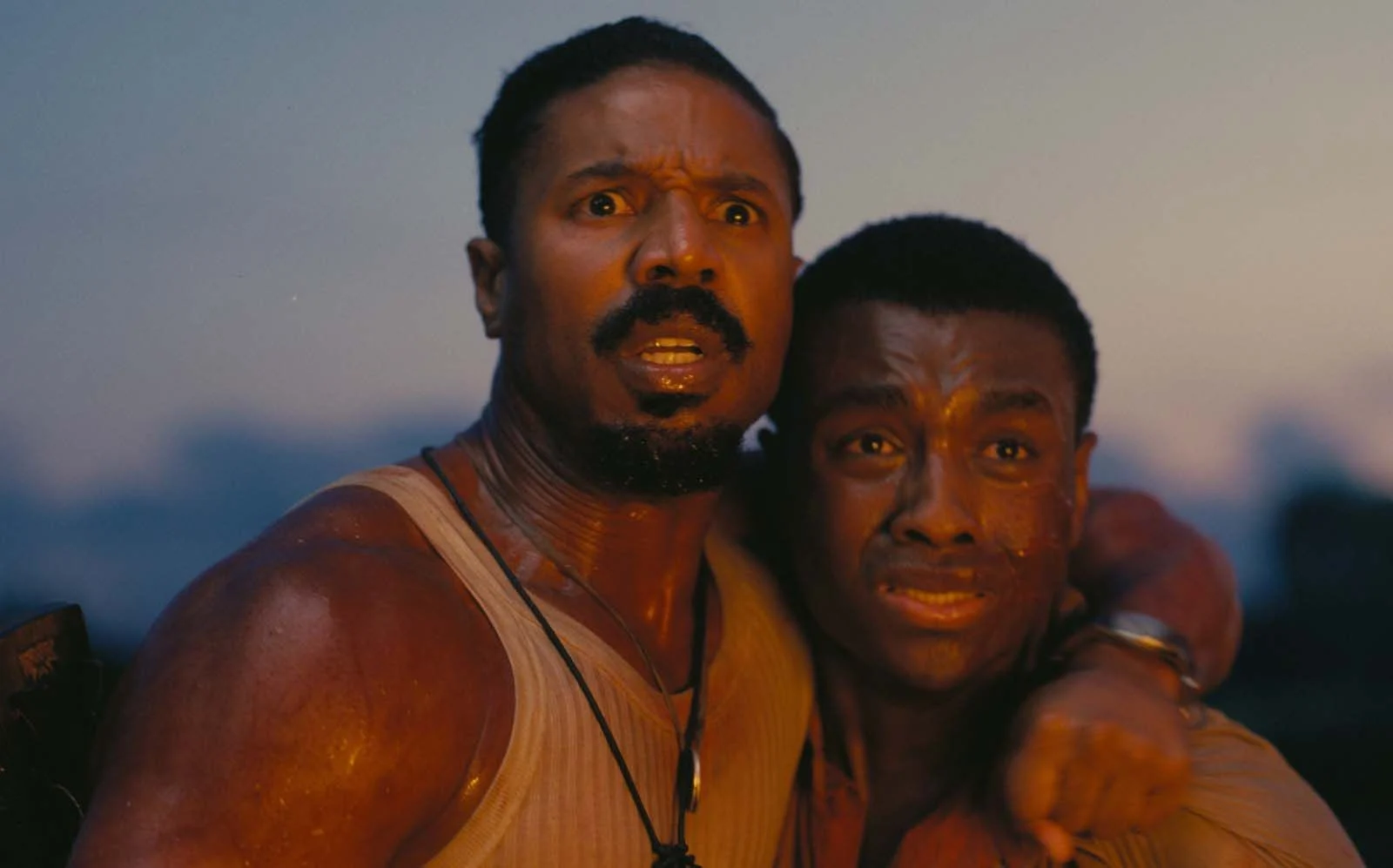Ryan Coogler has successfully broken out of Marvel with Sinners, a southern gothic horror that bites off more than it can chew despite its excellent performances and killer soundtrack. In many ways an homage to both a culture and to a series of similar predecessors ranging from O Brother Where Art Thou to From Dusk Til Dawn, this genre bending thriller cocoons two (three?) films into one, staging a night to remember at a juke joint’s opening night – but somewhere down the line, it loses its way.
Michael B. Jordan is electric as the Smokestack twins, primarily differentiated by their coloured ties, and back in the Mississippi Delta after a stint working for Al Capone in Chicago. Their plan immediately upon arrival is to open a juke joint for the local black community to celebrate the blues and their culture. For this, they enlist the help of their cousin Sammie (Miles Caton), the son of the preacher who has a knack for the guitar and a killer voice, and a team of old friends who have everything from catering to harmonica playing to offer. But darkness lurks in the town and it’s not long before the joint’s opening night is derailed by a demonic, fang-bearing presence.
A lot is crammed into Sinners, which is just as much its force as it is its downfall. The mixture of genres is a good one, from the period piece alluding to the Ku Klux Klan through to the vampiric horror twist and the tribute to the blues, expertly performed by its actors – but the result is something that feels like multiple drafts crammed into one. While the set up certainly builds the tension, it ends up lacking any concrete action besides Smoke and Stack’s rekindling with their respective partners – Smoke’s estranged wife Annie (Wunmi Mosaku) is found concocting charms in her house, while Stack is accosted at the train station by his ex-girlfriend Mary (Hailee Steinfeld on top form), a family friend who passes for white. Besides a sequence in Stack’s car in which Sammie reveals his wondrous voice and jaws are literally dropped, there is very little to work with. The vampire plot somewhat picks it up, but even here there are plot holes, lagging instances – characters make unexplained decisions, potentially exciting twists are shut down and cast aside. The “survive the night” trope is most disappointing, finished before there is even a chance for a plan or tension to build. If anything, the gap between the period and ‘til dawn’ jigsaw pieces is where there is most material – the vampires turning people slowly one by one (unfortunately, its trailer did it a major disservice in revealing half of the converted), the realisation of the rules associated with the legend. The messaging behind the vampires is an interesting one – soul sucking demons who wish to appropriate the blues and whose race does not go unnoticed – but sequences that should highlight it fall short, notably Sinners’ supposedly iconic moment in which the camera pans across a series of musicians from all eras, from Sammie through to a DJ spinning decks. While this has resonated with many, I found it as hackneyed as the final scene of Babylon, in which Manny (Diego Calva) watches an emotional montage of film from its genesis (The Horse in Motion) through to the present (Avatar, apparently). While the sentiment is there, it is yet another genre-esque pitstop in what is already an amalgam of styles. Aside from its performances then, which are top notch from the biggest of roles to the smallest, Sinners’ true force is its music – the Rocky Road to Dublin Irish dance, courtesy of the vampires, but most of all Miles Caton’s booming voice, still resonating long after the final scene (and the one after that).





